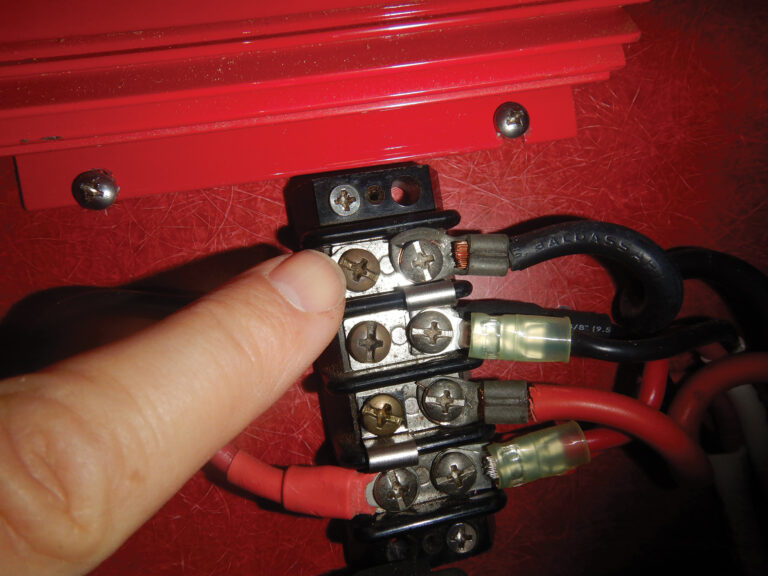
There may be a lot of storage space surrounding your bow thruster, but beware!
In keeping with my theme as promised last week, we are still considering and looking at spring “make ready” issues. In the case above a reader has recently discovered that under the v-berth in his forward cabin is a cavernous space surrounding his bow thruster that he can use for additional storage for things that aren’t used on a daily basis. He’s certainly right about that, but beware, potential horrors are possible if this space gets used without taking some precautions. If you look carefully at the photo above you’ll notice in about the center of the photo an electrical terminal where one of the high-current cables for the power supply to the thruster motor. Look very carefully and you’ll notice that there is no protective cover or boot on the terminal. In this case, if a heavy object were to hit that unprotected terminal and bend the lug on the positive side of the motor circuit it could cause a really profound case of DC stray current (electrolytic) corrosion to the lower leg of the bow thruster.
So, your spring checklist mission is to now look through your own boat and see how many DC electrical connections like this you can find without protective boots on the terminals. Typical locations are anywhere is the engine(s) starter circuits, bow thruster circuits and anchor windlass circuits. In the case of the starter circuits, they are the only circuits on your boat that are not required to have fuses or circuit breakers installed. So, if a short circuit does occur at one of these un-covered terminals, a fire could start! In the case of the bow thruster, it could simply be the reason for the entire lower leg of the thruster corroding away in a day or so once you launch the boat.
What to do? I recommend building a wooden cover over the motor assembly that can be removed when service is required, but it ensures that all the stuff you are intending to jam into this new found space doesn’t foul the electrical terminals and induce a low level short circuit to ground. Once safely protected, load er up!







